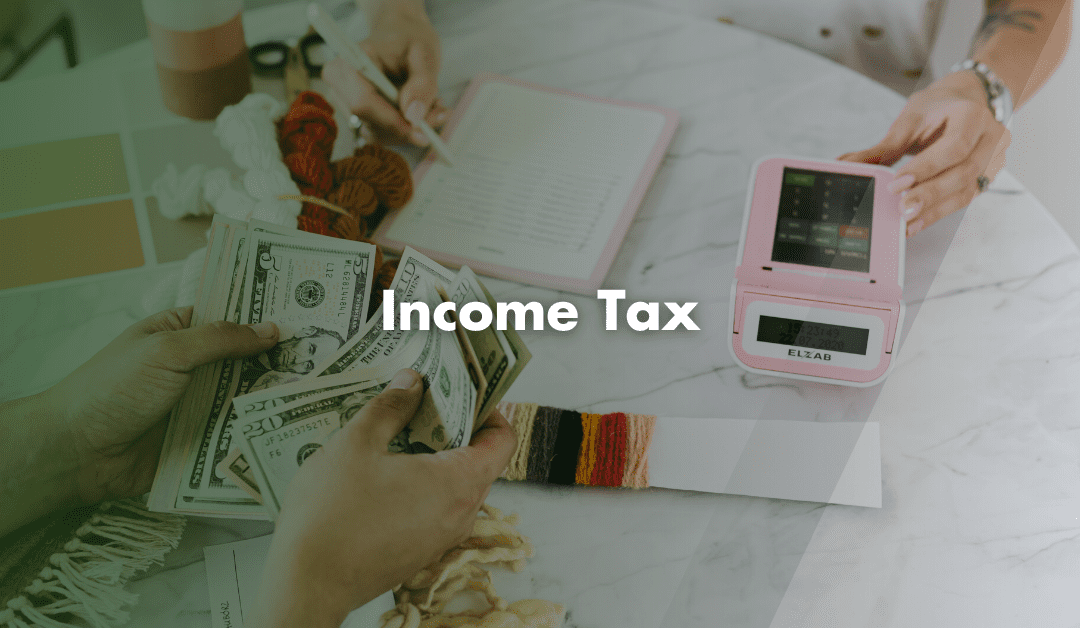Income Tax is a tax you pay on the money you earn. The government collects it through HMRC. However, not all income is taxable and the amount you pay depends on how much you earn.
What Counts as Taxable Income?
HMRC taxes various types of income, including:
- Employment Earnings – Salaries, wages, bonuses, tips
- Self-Employment Profits – If you run a business or sell services online
- Pension Income – Including State, company and personal
- Rental Income – Money earned from renting out property
- Job Benefits – Perks like company cars count as taxable income
- Savings Interest and Dividends – If they exceed tax-free allowances
- Income from Trusts – Any income received from trusts is also taxable
If you are unsure whether a specific source of income is taxable, it is best to check with HMRC or a tax professional.
What Income is Tax-Free?
HMRC does not tax all income. This includes:
- The first £1,000 of self-employment income – Trading Allowance
- The first £1,000 of property rental income (unless under the Rent a Room Scheme) – Property Allowance
- Interest from tax-exempt accounts, such as Individual Savings Accounts (ISAs)
- Dividends within the Dividend Allowance
- Lottery winnings
- Select State Benefits, such as Child Benefit and Universal Credit
How Much Income Tax Will You Pay?
The amount of Income Tax you owe depends on on your income. In the 2024/25 tax year, the tax rates are:
| Tax Band | Taxable Income | Tax Rate |
|---|---|---|
| Personal Allowance | Up to £12,570 | 0% |
| Basic Rate | £12,571 to £50,270 | 20% |
| Higher Rate | £50,271 to £125,140 | 40% |
| Additional Rate | Over £125,140 | 45% |
Your Personal Allowance decreases if you earn over £100,000. For every £2 earned above this amount, you lose £1 of your tax-free allowance.
This means you will no longer have a Personal Allowance by the time you earn £125,140 and will pay tax on all earnings.
How Do You Pay Income Tax?
There are 2 main ways to pay Income Tax:
- PAYE (Pay As Your Earn) – Most employees have tax deducted from their salary before they receive it. Employers handle tax deductions automatically.
- Self Assessment – If you are self-employed or earn untaxed income, you must file a tax return each year. This includes reporting rental income, freelance earnings or any other income not taxed at source.
Taxpayers pay directly to HMRC, instead of through indirect collection methods.
Tax Allowances and Reliefs
You can reduce your taxable income by claiming allowances, such as:
- Marriage Allowance – Transfer £1,260 of unused Personal Allowance to your spouse
- Savings Allowance – Earn up to £1,000 interest tax-free (£500 for Higher Rate taxpayers)
- Dividend Allowance – Receive £500 in dividends tax-free
- Gift Aid – Donations to charity can reduce your tax bill
- Pension Contributions – Contributing to a pension lowers your taxable income
- Blind Person’s Allowance – If you are registered blind, you ma qualify for an additional allowance
Tax on State Benefits
Some benefits are taxable, such as:
- State Pension
- Carer’s Allowance
- Jobseeker’s Allowance
- Bereavement Allowance
However, others are tax-free, including:
- Child Benefit
- Universal Credit
- Personal Independence Payment (PIP)
- Attendance Allowance
- Housing Benefit
- Winter Fuel Payments
Checking and Correcting Your Tax Payments
You can check your tax payments online through HMRC.
If you think you have paid too much Income Tax, you can request a refund. Overpayments often occur due to incorrect tax codes or changes in employment status. If you have underpaid tax, HMRC will usually adjust your tax code or send you a bill to settle the balance.
HMRC tracks income and taxes owed. If you underpay, you may face:
- Interest Charges
- Penalties
- Legal Action
Contact Us
We are not just accountants; we are Chartered Accountants with one of the most reputable and premium accounting bodies. We are registered and regulated by ACCA; so you can rest assured that you are in good hands. Knowing this, don’t hesitate to get in touch with us if you require assistance: Pi Accountancy | Contact Us

